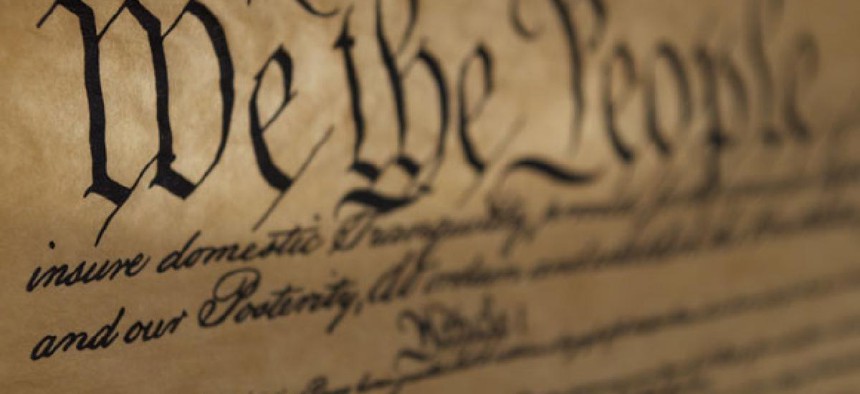Petition to Pardon NSA Leaker is Among Most Popular Ever Posted to White House Site

T Cassidy/Shutterstock.com
It drew 1,000 signatures an hour Monday afternoon.
This story has been udpated.
A petition on the White House’s We the People website demanding that President Obama pardon Edward Snowden, the leaker of National Security Agency documents, is gaining signatures at a rate that rivals and may surpass the most popular petitions ever posted to the site.
More than 63,000 people had signed the petition as of 2:30 p.m. Wednesday.
The number of signatures on the petition was growing at a faster rate than the most popular petition currently on the site, according to a Nextgov analysis. That petition asks the president to define the Westboro Baptist Church as a hate group and was posted after the church pledged to picket the funerals of children killed in a December 2012 mass shooting at Sandy Hook Elementary School in Newtown, Conn. The Westboro petition, which now boasts 360,000 signatures, is awaiting an official White House response.
Signature velocity on the Snowden petition was also greater than on a petition asking the president to allow Texas to secede from the union. Secession petitions were posted from every state in the union shortly after the president’s November 2012 reelection, though the Texas petition was the most popular.
The secession petitions and the response to the Sandy Hook massacre marked the two largest petition surges during We the People’s roughly two years online. The most popular petition, which asked the president and Congress to enact new gun control laws in the wake of Sandy Hook, showed greater velocity than the Snowden petition has so far.
Most We the People petitions surge in signatures and then slow down. At this early stage it’s impossible to know how many signatures the Snowden petition will ultimately receive.
White House Press Secretary Jay Carney declined to comment on the Snowden petition during his daily briefing Monday in response to a question by ABC News’ Jonathan Karl.
“When it comes to petitions, we wait until the threshold has been crossed, and that threshold has not been crossed,” Carney said.
The White House has pledged to offer an official response to any We the People petition that receives more than 100,000 signatures in one month.
Snowden, a former CIA technical assistant and Booz Allen Hamilton contractor for the National Security Agency, admitted Sunday that he had leaked numerous classified documents to the Guardian newspaper and The Washington Post during the previous week.
Those documents detailed two secret surveillance programs aimed at combating terrorist activities. The first one collected metadata from cellphone calls, including from some American citizens. The second program, called PRISM, pulled data directly from the servers of Google, Facebook and other Web companies. That program was targeted at gathering intelligence about non-Americans but collected information on some Americans as well.
The text of the We the People petition is only one sentence long. It states: “Edward Snowden is a national hero and should be immediately issued a full, free, and absolute pardon for any crimes he has committed or may have committed related to blowing the whistle on secret NSA surveillance programs.”
President Obama described We the People upon its launch in September 2011as a “a direct line to the White House on the issues and concerns that matter most.” Some petitioners have complained, though, that the White House rarely if ever reconsiders policy positions in response to popular petitions.
Harvard University professor Archon Fung studies digital democracy initiatives. He said Monday the White House deserves credit for hosting petitions that are so directly opposed to its own policy preferences on the White House domain. He also pointed out some limits to what could be gleaned from the We the People system. For instance, it’s not clear whether people signing the Snowden petition object to the surveillance programs themselves or merely to the White House’s secrecy about them, he said.
The five areas that had contributed the most signatures to the Snowden petition as of Monday afternoon included many technology leaders. They were, in order: San Francisco, Seattle, Manhattan, Brooklyn, Chicago and Austin, Texas. About 84 percent of petition signers listed U.S. addresses.
Nextgov's analysis script was developed with help from Navigant Consulting Inc. Analyst Reggie Gomez.





